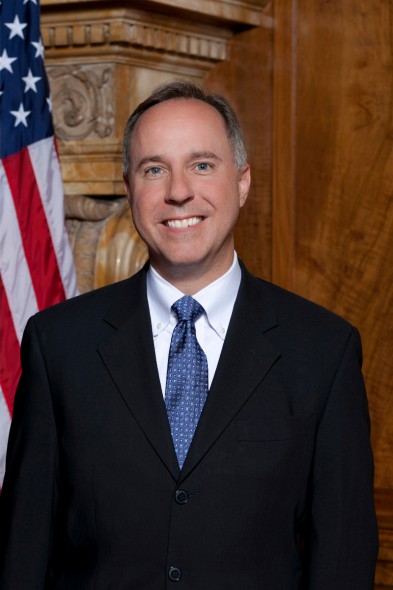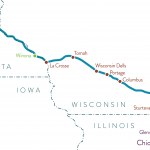Republicans Will Review Recount Process
Though it went smoothly, Vos and Walker may want changes in the law.
After local clerks hired an army of temporary workers to recount 2.97 million votes for President in a 10-day period, and the Green Party candidate who finished fourth paid $3.5 million for the recount, what did Wisconsin learn?
Before you answer, consider that the first presidential recount in Wisconsin history found only 397 more votes, and widened – by 131 votes – the winning margin of President-elect Donald Trump. In 2011, a statewide Supreme Court election recount found 352 more votes, out of 1.5 million votes cast.
Still, the answer to the “lessons learned” question depends on who you ask.
“Wisconsin did not look like Florida” in 2000, Elections Commission Chairman Mark Thomsen observed, referring to state whose hanging chads and messy results ultimately led to the U.S. Supreme Court’s halt of a recount in that state. That court order elected Republican President George W. Bush.
Wisconsin’s presidential recount was “flawless,” Thomsen added.
But some Republicans say the recount surfaced issues that must be researched, and maybe fixed.
“While the recount was more of a publicity stunt than anything else, at the very least it proved that our state has a fair and trustworthy system because of our efforts to reduce fraud with the implementation of voter ID,” said Assembly Speaker Robin Vos.
“Moving forward, we will investigate additional ways to reform our election laws to reduce any chance of fraud,” Vos added. “The Assembly Republican caucus will also discuss changes to the recount statute to insure Wisconsin taxpayers don’t bear any of the costs of future recounts.”
Republican Rep. David Craig, who will be sworn in as a state senator Jan. 3, told watchdog.org that the recount was a “colossal waste of time and resources.”
And, Republican Gov. Scott Walker told reporters recount laws are “something we’ll look at modifying.”
But Kevin Kennedy, who had about 35 years of overseeing elections before he was forced into retirement by the creation of separate state Elections and Ethics commissions, said: “When a known loser is willing to give the state $3.5 million for a recount, it’s one of the best things that could have happened to the new Commission.”
The recount was a “performance evaluation” of Wisconsin’s election process – and proved it works well, Kennedy added.
But the recount raised these issues:
*Who can request recounts?: Green Party candidate Jill Stein got only 1 percent of the vote, but she used a law that says, if a candidate pays for a recount, they get one. Stein’s campaign wired the state $3.5 million to force a 72-county recount.
State law says, if the difference between two candidates is 0.25 percent or less, a recount is free. State law used to allow free recounts if the difference was 0.5 percent or less, but Kennedy said it was changed because legislators felt too many recounts were being held.
Legislators will consider whether a fourth-place finisher should be able to force a recount they have no chance of winning.
At a West Allis rally last week, Trump called Wisconsin’s recount a “scam” organized by Democrats. Stein “got less than 1 percent, but she thought she was going to catch us,” Trump added.
*Deadline to seek recount: If a losing candidate wants a recount, how much notice should they have to give state and local officials, so they can begin to prepare?
*Hand count versus machine count: Stein’s campaign went to court to try and force a vote-by-vote recount, but a federal judge refused to order it. Instead, local clerks could choose to recount by hand or by machine.
But, Kennedy said, “For all practical purposes, we have a hand recount. Every single (ballot) gets looked at,” even if final vote totals come from voting machines.
*Reimburse state government costs: State Elections Commission staffers worked long hours on the recount, but state law says only local government costs will be reimbursed.
The state Elections Commission needs the money. Federal cash that pays the salaries of more than half of its employees runs out next year.
Steven Walters is a senior producer for the nonprofit public affairs channel WisconsinEye. Contact him at stevenscwalters@gmail.com
The State of Politics
-
How Higher Ed Institutions Are Shrinking
 Apr 1st, 2024 by Steven Walters
Apr 1st, 2024 by Steven Walters
-
How New Supreme Court Influenced Legislative Decisions
 Mar 18th, 2024 by Steven Walters
Mar 18th, 2024 by Steven Walters
-
New State Aid Favors Rural Areas
 Mar 4th, 2024 by Steven Walters
Mar 4th, 2024 by Steven Walters

















Wait, what’s that you say? This new (partisan) Elections commission that Walker (and ilk) railroaded through is paid for by federal money that’s about to run out? I though that was against Walker’s principled stand, much like it was for a certain rail infrastructure investment…
Say one thing, do another. Say whatever you need to get elected, then do another. Sigh.
“While the recount was more of a publicity stunt than anything else, at the very least it proved that our state has a fair and trustworthy system because of our efforts to reduce fraud with the implementation of voter ID,” said Assembly Speaker Robin Vos.
Vos still pretends that voter ID prevents fraud when hundreds of studies have shown voter fraud to be nearly non-existent. What the recount didn’t (and couldn’t) show is how many thousands of votes were not cast because otherwise eligible voters either didn’t try or lacked proper ID. Voter suppression laws are among the most powerful tools in the republican arsenal to ensure victories at the polls even through their ideas lack popular support.
No, it did not go smoothly. Observers of the Elmwood Park (Racine Co.) recount noted an undervote rate for President of about 5% by optical scanner, but as they were watching the ballots being fed & counting votes then, there was no such undervote rate. The optical scanner recorded 18 undervotes, but the observers only saw 3 undervotes. The local clerk refused to do a hand count of the 300 ballots. So we’ll never know. Why isn’t this news? https://www.youtube.com/watch?v=D1284ARxFag
If banks were run like elections: A Wisconsin bank with offices in every county recently performed an audit of its November 8 transactions. The audit reversed at least 17,861 transactions. Corrections both increased and decreased customer’s accounts.
Auditors reported adding 9,039 deposits to customers’ accounts during the audit and reversing 8,642 deposits. The actual number of errors found during the audit, however, is much higher. County auditors reported only the net change from each town’s audit to the central bank, not the total number of errors found. For example, if one town’s branch office was found to have credited one account with three invalid deposits, and neglected to credit that same account with four valid deposits, county auditors reported only the net change – only one, in this example—to central bank headquarters.
Because negative and positive corrections largely cancelled each other out, the audit found that the bank’s books were off by only a few hundred deposits. Bank President Mark Thomsen expressed delight. “Flawless,” he declared. “There was a much worse audit in Florida in 2000,” he said.
The bank’s former president, Kevin Kennedy, also expressed satisfaction, saying that the audit had been a “performance evaluation” that proved the bank works well.
Members of the bank’s board of directors, however, were angry—but not for the reason you would expect. Chairman of the Board Robin Vos declared that the audit “was more of a publicity stunt than anything else. Bank investors shouldn’t have to pay the costs of future audits.”
Board member David Craig agreed, saying the audit was “a colossal waste of time and resources,” and that the audit had “disrupted the lives of hundreds of Wisconsinites who had to conduct this audit.”
Currently, any customer who owns an account can demand an audit if they are willing to pay the cost, unless they suspect only a tiny error no larger than 0.25%. Depositors who do not own an account themselves but who deposit to others’ accounts are not entitled to demand an audit under any circumstances.
I voted for neither Trump nor Clinton so don’t discount my comment as a sore winner or a sore loser, but the recount as conducted and without any other political opinion attached, was not performed as was requested with mandatory hand recounts of paper ballots across the board. That was the only process which would have honestly verified the actual state vote.
State GOP will continue to make snide remarks about how worthless and what a waste of time it was in order to claim righteousness in their planned actions to reduce any future challenges to their hold on power. Holding power and the ability to successfully govern a state in the larger public interests, we have seen clearly are two distinctly different issues. Rigging the system in the face of their serial inability to govern is the GOP way.